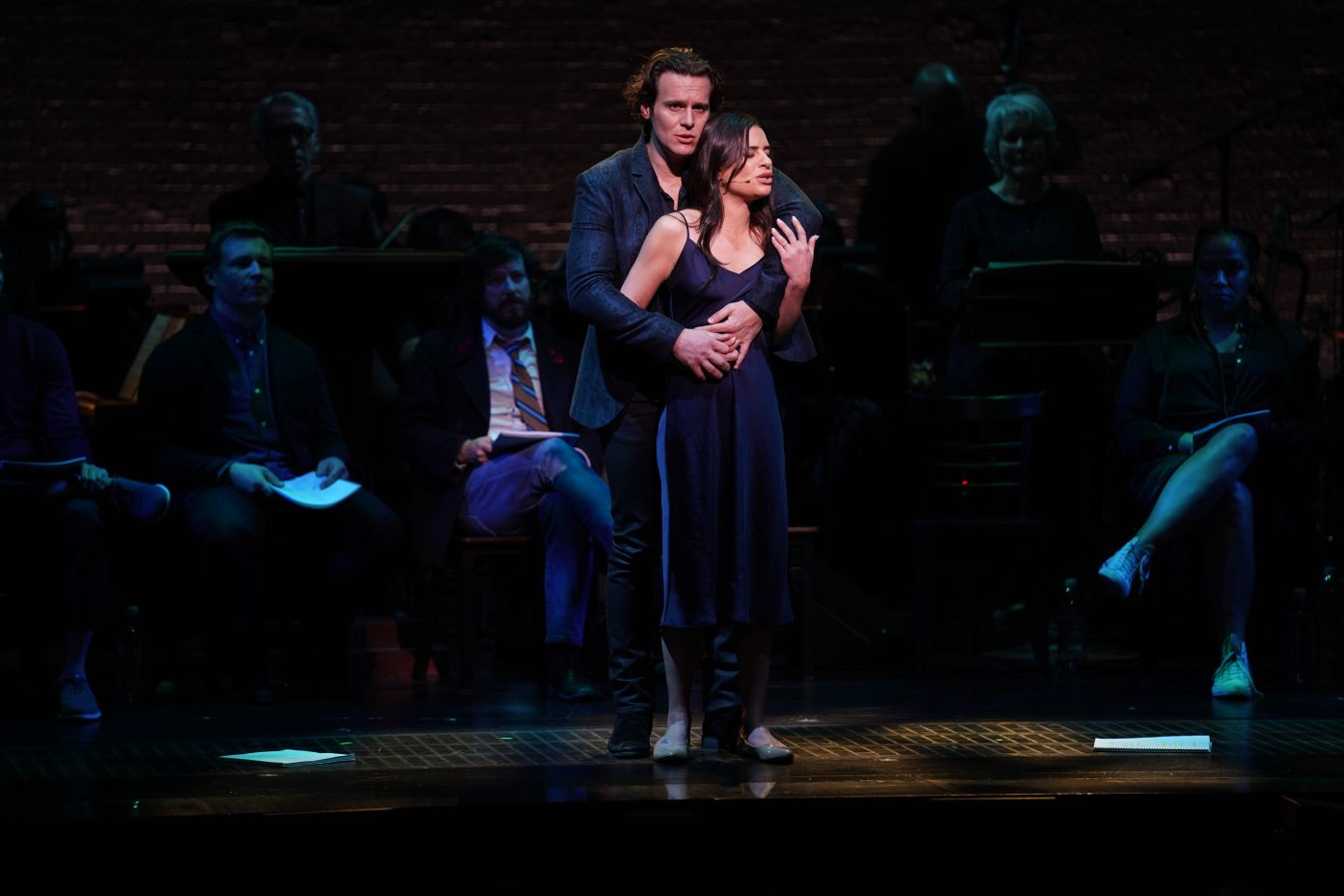To borrow from Lerner and Loewe’s (1960) musical, “it’s May,” readers, “the lusty month of May, that lovely month when everyone goes blissfully astray” — and we here are no exceptions.
This week, for a short serving of Hot Tea, we dip our cups below a few new streams, at fewest the bookends of which consider squarely sex: what it is, how it is, and where we can learn from it about our shared humanity.
Spring Awakening: Those You’ve Known
HBOMax • Documentary • The Performing Arts
Synopsis
In the days leading up to a revival performance of Duncan Sheik’s (2007) ambitious rock musical Spring Awakening, the original cast and creators of the eight-time Tony Award winner reminisce about the years-long journey it took them as a group and as individuals to first reach and then endure on the Broadway stage.
My take
Spring Awakening is, sadly, one of those musicals whose original Broadway productions I missed, despite my being old enough and geographically nearby enough to see them. Graduating from college in Boston the same spring as the musical rocketed to both popularity and accolade in New York City, I suspect I would have particularly enjoyed the German tragedy about adolescent sexuality then, nearer to my teenaged years than when I eventually first saw it, about six years later in its production at Carnegie Mellon University’s School of Drama in Pittsburgh. Fortunately, that later production (thanks to the talent in training at that school) captured well the verve and the punch of the original Broadway run — or, at least, I’ve consoled myself for years with saying so. Reflecting on everything now, however, I think instead it may simply be that, wherever the audience, it’s hard to recork the well-orchestrated passion of this particular show, once heard.
Spring Awakening is, simply put, one of the best theatrical experiences I’ve ever had; and now, having had the double displeasure of missing it twice (the second time during the one-night-only concert performance the original cast gave another New York City audience this past Fall), I’m at least glad to say I — and you — can enjoy selections from the original cast in this new special, which (with one exception) cleverly mimics the dramatic structure of the musical’s book to frame out and tell its own parallel story about the people who produced it. Between clips of songs from both the original and the concert performances, original Broadway cast members Jonathan Groff, Lea Michelle, and Tony winner for this show John Gallagher, Jr., alongside composer Duncan Sheik, writer Steven Sater, and other members of the cast and crew share memories and takes on all the behind-the-scenes goings-on — where, for anyone still wondering, Sater explicitly defines what exactly he meant by “purple summer.”
As a documentary, this revisit to the stage has its greatest virtue in simply reminding us of what a truly excellent piece of theater Spring Awakening is, and thus celebrates the hard work that the cast and crew put in in order to make sure that we, the hopeful public, eventually heard it. Only for those hapless Broadway junkies among us does the documentary really offer anything else strong, in its quaint revelations about the show and the people who contributed to it. Still, even on its own it, like its feature work and coincidentally our Retrospective this serving, readers, is a great reminder of the importance honest attitudes and mores regarding sex, embodiment, and emotion carry in our lives and the consequential way in which, in the wash of euphemism and “sanity,” those virtues can all too quickly be eroded from an otherwise empathetic public consciousness.
Temperature check
Tepid (even though the underlying musical steams)
Tehran (Season 2 Premiere)
Apple TV+ • Drama • Espionage in the Middle East
Synopsis
An Israeli hacker, embedded for the Mossad in Tehran, is both hunter and hunted, player and pawn, in the counter-active cross-talk between her home country and the government of Iran.
My take
The cat-and-mouse game of an almost interesting first season continues, now with Glenn Close.
Temperature check
Tepid (barely)
The Lost City (2022)
Paramount Plus • Action • Brainy Girl Embraces Brawny Guy against Evil
Synopsis
The hyperdefensive writer of a historical romantic adventure series begrudgingly relies on her dim-witted character model for more than she’d ever bargained for.
My take
An overly ‘touched-up’ Sandra Bullock and an apparently ass-double-requiring Channing Tatum star in this almost clever, if by the book, romantic comedy in the tradition of Dutton and Aron’s (1974) “shaky bridge” experiment; Turteltaub, Kouf, Wibberley, and Wibberley’s (2004) National Treasure; Collet-Serra, Green, Ficarra, and Requa’s (2021) Jungle Cruise; and adventure-romance novels everywhere. The best part? Brad Pitt’s cameo as the idealistic androphile’s picture of a man, sans only, perhaps, explicit mention of his (undoubtedly) heavy penis.
A far cry from the enduring ripeness of Bullock’s (2009) rom.-com. The Proposal with the wittier but otherwise similar heartthrob Ryan Reynolds, this new film is the cinematic equivalent of a Red Delicious apple: shiny and attractive to see, but mealy and bland to actually taste. While Daniel Radcliffe sometimes tickles as the eccentric foil, watch for lighthearted tomfoolery and nothing more.
Temperature check
Cold
The Staircase (Series Premiere)
HBOMax • Drama • True Crime
Synopsis
The widower of a corporate executive protests his own innocence against the will of a public opposition committed to seeing him sentenced for her alleged murder.
My take
I confess, readers, I completely missed the original documentary series The Staircase, on which this new dramatization using the same name is at least partially based, back when it premiered in 2004 and later when Netflix picked it up as a non-fiction ‘True Crime’ title in 2018. Frankly, ‘True Crime’ obsessives like the “Serial” podcasts are not — at least historically — my media of choice.
That said, the premiere three episodes of HBOMax’s new series The Staircase compelled me to reach back in time, to digest the docu-series as partial homework, for a better understanding of the drama, partly at least for the sake of this very review. Though I admit to not having finished that supplementary series quite yet, the overall take-away for you, readers, is that the Toni Collette- and Colin Firth-led fiction series now airing is at least so far doing an excellent job at recreating the circumstances and the characters around what is now, I suppose, a notoriously dodgy crime trial in recent American history. They’re not so much the performances, though they are so far so good with the potential for more, as they are the editing and the off-screen story-crafting the writer and director must have completed, that avoid wilting the flower like a hastily plucked garden rose while they instead (smartly) plump the petals, so to speak, on a possibly blue-ribboned American Beauty1. This isn’t Atticus Finch’s noble assayée of virtue’s mettle in a quaint glass; no, characters and motives here are far greyer than than idyllic black and white, though chess moves on tiles of those colors abound, again metaphorically speaking. A tale trained on perception, the series has the potential to be a note-worthy addition to HBOMax’s now seemingly regular orders of dark criminal dramas featuring high-profile stars, including the likely worse The Undoing (Kelley [creator], 2020) and the categorically better Big Little Lies (Kelley [creator], 2017-2019).
To the extent that this new series can approximate the best of that growing sub-catalogue, I long for Collette’s expanded presence and stronger acting in the deeper episodes to come.
Temperature check
Tepid (though the burner may still be on)
Retrospective
Quills (2000)
Various platforms • Drama • BDSM
Synopsis
Against the suppression of his talents, the Marquis de Sade continues penning his erotic works while incarcerated at the asylum Charenton in post-revolutionary France.
My take
To say that taking in Kaufman and Wright’s (2000) coup d’éclat Quills is an exercise of endurance as much as film-going is exactly the kind of sly misdirection its protagonist enjoys inflicting upon his own readers. A late-stage historical fiction biopic about the notorious eroticist the Marquis de Sade, a French nobleman whose elevated station, no doubt, afforded him both the opportunity and the luxury to publish his dark desires for the horny masses, Quills honors the writer’s legacy by weaving its own story in ribald kind. Involving among other impurities penile votives, literal rolls in the hay, and carnal appetites, the film pulls no punches but provides instead a veritable seven-course meal, dabbling taste in what I’d wager might be every conceivable pot by which the Marquis would serve his actual stories or, for that matter, their characters. Beyond this wordplay, however, the point, readers, is not merely to entice, nor simply to horrify; the point, of course, is to demonstrate, using all the sharp contrasts and clever wit of an ambitious rider taming a wild stallion, to prove out in a unique kind of treatise the indomitable nature of man and the considerable struggle many wage to bridle that nature (either others’ or their very own). The film is, to be concise, a graphic glimpse at our social face in a silver(-tongued) mirror.
As de Sade, Oscar-winner Geoffrey Rush, nominated again for this role, leads the cast, including past and future Oscar winners Michael Caine as the imperious minister Doctor Royer-Collard, Kate Winslet as the dreamy laundress Madeleine, and Joaquin Phoenix as perhaps the equally dreamy yet tenaciously wholesome Abbé de Coulmier — all of whom turn in career defining performances. Stephen Moyer, later of True Blood (Ball [creator], 2008) fame, guests as promising young architect (and rake) Monsieur Prioux.
In addition to Rush’s Actor in a Leading Role nomination at the 73rd Academy Awards, Quills was also nominated for previous winner Martin Child’s Art Direction and future four-time nominee Jacqueline West’s Costume Design (whose most recent nomination was for this past year’s technically adored Dune). Outside the Oscars, Quills also received nominations for Rush’s and Winslet’s performances by the Screen Actors’ Guild (SAG) and for Wright’s screenplay at the Golden Globes, as well as wins for Phoenix’s performance by the Broadcast Film Critics’ Association (BFCA) and the National Board of Review, which finally not only included the film among its “Top Ten” of the year but moreover selected it as the very “Best Film” of 2000.
To say that I recommend this film, especially now, is, in a way, its own style of understatement. A film addressing corporeal autonomy, bureaucratic hypocrisy, and moralizing girders on “virtue” and behavior will, as long as Puritanical roots supply our Western institutions with life, remain relevant and instructive for us all.
Watch with care, readers.
Temperature check
Hot (ouch!)
It’s true, the circumstances and courtroom drama in The Staircase feel very much to me like what I’d always imagined the deleted courtroom scenes from Mendes and Ball’s (1999) Best Picture Oscar winner must have felt like to in-universe spectators or even neighbors of the film’s climactic homicide.








